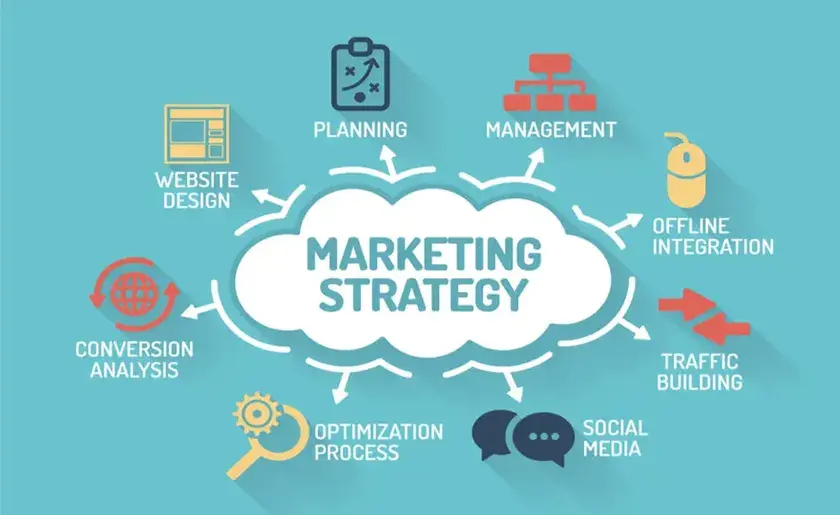
In today’s competitive job market, finding the right talent can significantly impact a company’s success, especially in marketing. This is where a marketing recruiter comes into play, acting as a pivotal link between companies and talented marketing professionals. Understanding the role of a marketing recruiter is essential for HR managers, marketing professionals, and job seekers alike.
The Role of a Marketing Recruiter
A marketing recruiter specialises in identifying, attracting, and hiring marketing talent. Unlike general recruiters, they possess a deep understanding of marketing strategies and industry trends, which allows them to effectively match candidates with roles that align with their skills and career aspirations. Their significance in the industry cannot be overstated, as they streamline the hiring process, ensuring companies acquire top-tier talent that can drive business growth.
Skills and Expertise Required
To excel as a marketing recruiter, a combination of skills is necessary. They need an in-depth knowledge of marketing trends and strategies to evaluate candidates’ expertise accurately. Strong communication skills are crucial for interacting with both candidates and hiring managers. Additionally, they must be adept at using recruitment technology and platforms to efficiently source and screen potential hires. Networking abilities are also vital, as building relationships with a pool of candidates ensures a steady flow of potential talent.
Tasks and Responsibilities
A marketing recruiter’s responsibilities extend beyond simply filling positions. They begin by understanding the specific needs of a company’s marketing team and then develop targeted recruitment strategies to attract suitable candidates. This includes sourcing talent through various channels, conducting initial screenings, and coordinating interviews. Their role also involves negotiating job offers and facilitating smooth onboarding processes. By doing so, they help companies maintain a competitive edge by securing marketing professionals who can contribute to strategic objectives.
Differentiating Marketing Recruiters from Other Recruiters
A marketing recruiter stands apart from general recruiters due to their specialised knowledge of marketing. This expertise enables them to better understand the nuances of marketing roles, ensuring candidates possess the necessary skills and qualities. Additionally, their insight into industry trends allows them to anticipate changes in the job market, making them valuable advisors to both companies and candidates. Their ability to speak the language of marketing enhances their effectiveness in matching the right candidate to the right position.
Benefits for Companies and Job Seekers
For companies, partnering with a marketing recruiter offers numerous advantages. Firstly, it saves time and resources by streamlining the recruitment process. Recruiters have access to a broader talent pool, increasing the likelihood of finding candidates who are a perfect fit. Additionally, their understanding of marketing trends means they can provide valuable insights into current market demands. For job seekers, engaging with a marketing recruiter can open doors to exciting opportunities. Recruiters often have access to exclusive roles not advertised elsewhere, providing candidates with a competitive advantage in their job search.
Tips for Job Seekers
For those seeking a new marketing role, capturing a marketing recruiter’s attention is crucial. Crafting a compelling CV that highlights relevant skills and experiences is a good starting point. Networking within the marketing community and attending industry events can also increase visibility. It’s important to stay updated on industry trends and showcase a willingness to adapt to changing demands. Being proactive in reaching out to recruiters and maintaining open communication can significantly enhance job prospects.
The Future of Marketing Recruitment
The landscape of marketing recruitment is constantly evolving, driven by technological advancements. Artificial intelligence and machine learning are playing an increasingly significant role in candidate sourcing and assessment. These technologies allow recruiters to identify potential matches more accurately, saving time and improving the quality of hires. However, while technology streamlines certain aspects, the human element remains irreplaceable. Building and nurturing relationships, understanding company culture, and recognising individual potential are aspects that technology cannot fully replicate.
Conclusion
In conclusion, marketing recruiters are essential players in the recruitment process, bridging the gap between companies and marketing talent. Their specialised knowledge and industry insights make them invaluable partners for both HR managers and job seekers. To thrive in an evolving market, businesses must leverage the expertise of marketing recruiters to secure the best talent. For aspiring marketing professionals, engaging with these recruiters can unlock exciting career opportunities.